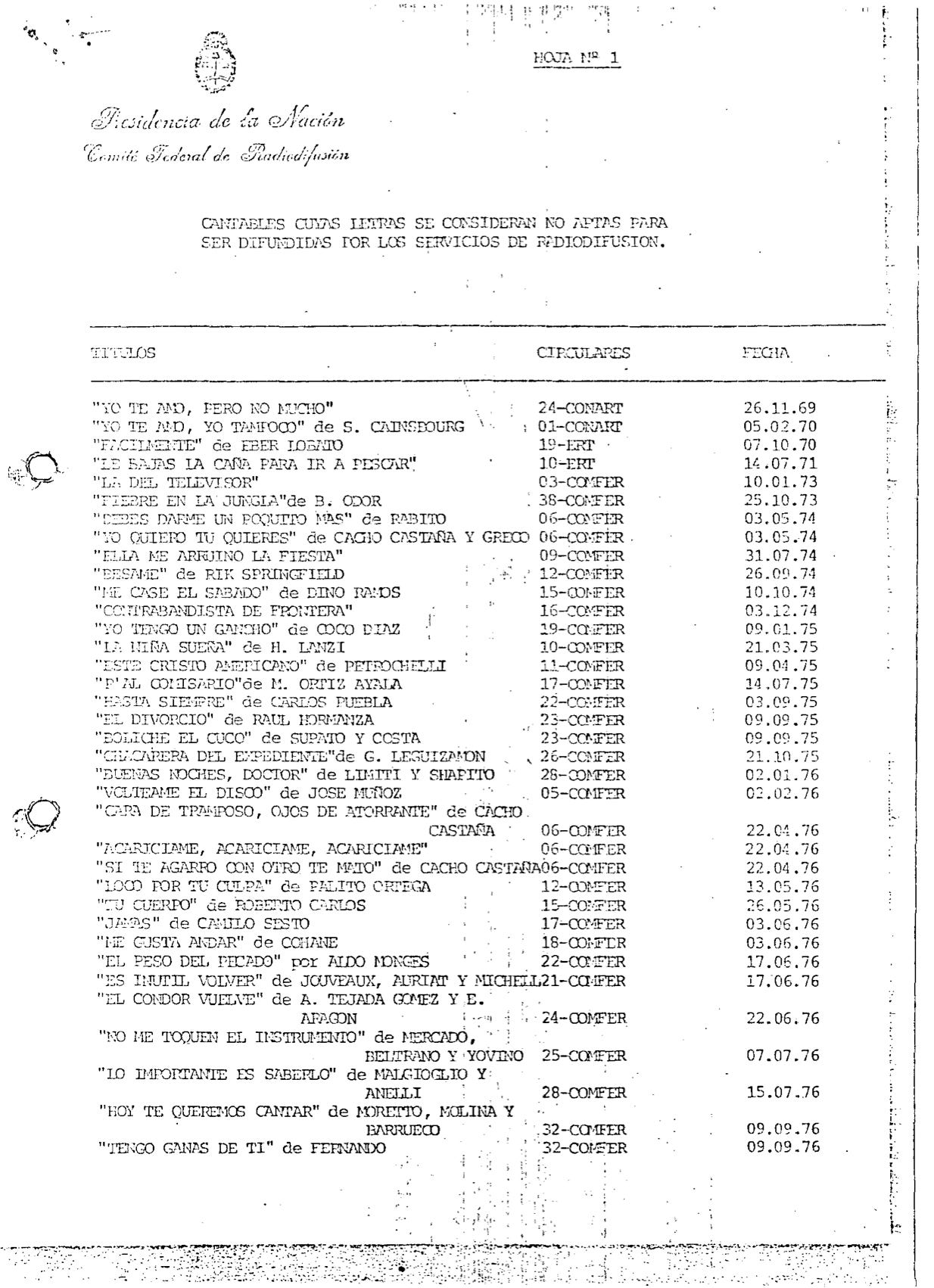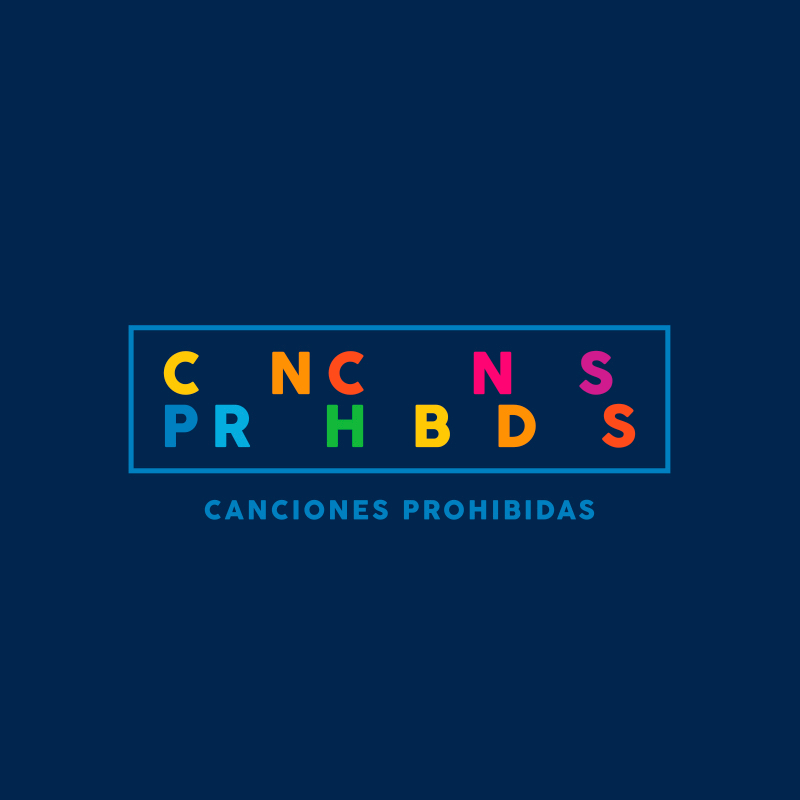Forbidden Songs.
My father was kidnapped and tortured. He survived.
His weapon was poetry. The civic-ecclesiastical-military dictatorship in Argentina wanted him dead. From March 24, 1976 (today, 48 years ago), the day of the coup d'état, until the return of democracy in 1983, more than 30,000 people were murdered.
He sang about how all voices together could be a song in the wind, united in a fraternal embrace without borders. Thousands of artists suffered the same fate.
There was a blacklist of songs banned from being sung or played on the radio during those times of transformative music and culture.
This happened not only with songs that had a socio-political critical connotation, but also with any song that included words considered inappropriate (authoritarianism is not only intolerant, but also immensely ignorant).
This is the official document from the Presidency of the Nation with the blacklist of songs, titled "Songs whose lyrics are deemed unsuitable for broadcast by radio services":

In 2015, I produced an album for a new recording studio built by the Argentine government. There we re-recorded songs that were previously banned, performed by artists from a different generation.
Today, on another painful March 24th for those of us who cherish life, we release the banned songs on digital platforms. We donate all royalties to the Grandmothers of Plaza de Mayo, who are still searching for their missing grandchildren:
Authoritarianism kills, ideas are eternal.
That's what I'm passionate about culture for: art is one of the most intangible subjects there is, and despite that, it leaves us with feelings and deep marks. When a human tries to destroy a word, it has the resistance of rock. It endures, illuminates, and splits to multiply into millions. What would life be without art, which finds its place where words fall short?
As a pianistand producer, I collaborated with one of Argentina's most wonderful singers, Fabiana Cantilo, co-founder of national rock. Together we reconstructed "Viernes 3 A.M.," a song by Charly García.
"The song is something that should be, if it is not, extremely dangerous, because it has that thing about sneaking into everyday life, into the permanence of the everyday, and it can say tremendously moving things." - Gabo Ferro.

All songs will be available on April 2nd on Spotify and a documentary will be released. Official press release in Spanish here.
Member discussion